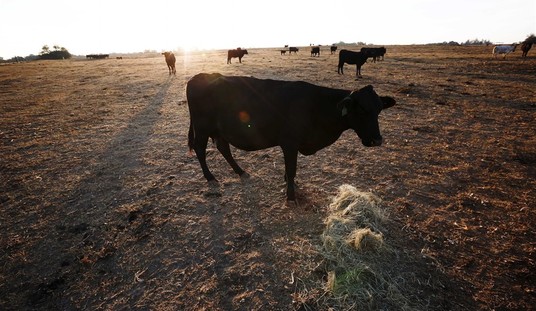Add the city of Longmont, Colo., to the growing list of communities freaking out over fracking. This enclave in liberal Boulder County will ask citizens to vote on a fracking ban this November. The local newspaper has the story:
The measure would amend the city charter to ban hydraulic fracturing, or “fracking,” a process that reaches oil and gas deposits by using high-pressure fluid to crack rock deep underground. Opponents claim the practice is environmentally damaging; supporters say the practice has been standard for years and occurs too deep to taint groundwater.
Longmont is currently facing a lawsuit from the Colorado Oil and Gas Conservation Commission over restrictions the City Council recently adopted on oil and gas drilling.
Whether it’s Colorado or New York, there’s no shortage of fracking hysteria in the news. Thanks in part to liberal filmmaker Josh Fox and his legion of anti-fracking followers, the issue is among the most contentious debates in America. Now there’s growing concern that federal bureaucrats at the Environmental Protection Agency will step in to shut down successful projects that have brought economic prosperity to communities in North Dakota, Ohio and Pennsylvania.
Fortunately, after years of going unchallenged, the anti-fracking crowd is facing some tough questions. Science, it seems, is increasingly proving their myths about drilling to be wrong. Even the Associated Press — not exactly a bastion of conservative thought — declared three of their most-alarming assertions about hydraulic fracturing as false or misleading:
Critics of fracking often raise alarms about groundwater pollution, air pollution, and cancer risks, and there are still many uncertainties. But some of the claims have little — or nothing — to back them.
For example, reports that breast cancer rates rose in a region with heavy gas drilling are false, researchers told The Associated Press.
Fears that natural radioactivity in drilling waste could contaminate drinking water aren’t being confirmed by monitoring, either.
And concerns about air pollution from the industry often don’t acknowledge that natural gas is a far cleaner burning fuel than coal.
Of course, this was known before the AP waded into the debate. The filmmaking duo of Ann McElhinney and Phelim McAleer are working on a documentary that tells the truth about fracking. “FrackNation,” which inspired donations of more than $200,000 on Kickstarter, confronts some of the myths perpetuated by Fox and other anti-fracking activists.
Fox’s movie, “Gasland,” served as the inspiration for many of the claims that are being used to attack fracking. The supposed rise in breast-cancer cases was perhaps one of the most effective — and alarming — statistics cited by Fox. Yet, according to the AP, it’s not true:
Opponents of fracking say breast cancer rates have spiked exactly where intensive drilling is taking place — and nowhere else in the state. The claim is used in a letter that was sent to New York’s Gov. Andrew Cuomo by environmental groups and by Josh Fox, the Oscar-nominated director of “Gasland,” a film that criticizes the industry. Fox, who lives in Brooklyn, has a new short film called “The Sky is Pink.”
But researchers haven’t seen a spike in breast cancer rates in the area, said Simon Craddock Lee, a professor of medical anthropology at the University of Texas Southwestern Medical Center in Dallas.
David Risser, an epidemiologist with the Texas Cancer Registry, said in an email that researchers checked state health data and found no evidence of an increase in the counties where the spike supposedly occurred.
And Susan G. Komen for the Cure, a major cancer advocacy group based in Dallas, said it sees no evidence of a spike, either.
“We don’t,” said Chandini Portteus, Komen’s vice president of research, adding that they sympathize with people’s fears and concerns, but “what we do know is a little bit, and what we don’t know is a lot” about breast cancer and the environment.
Yet Fox tells viewers in an ominous voice that “In Texas, as throughout the United States, cancer rates fell — except in one place— in the Barnett Shale.”
The AP confronted Fox about his claims about breast-cancer cases in Texas. He stood by the assertion.
The AP’s story is a refreshing example of the critical thinking and skepticism that should take place in newsrooms each and every day. Only in this case, some of the most misleading and false assertions went unchallenged for years.
And while it would be naive to think fracking critics are the only ones peddling an agenda, there are undeniable benefits to drilling that too often go unnoticed. Take the case of North Dakota, which recently surpassed both Alaska and California in oil production. Household income in North Dakota rose sharply as a result. In fact, it has literally changed lives:
Rob Bluey directs the Center for Media and Public Policy, an investigative journalism operation at The Heritage Foundation. Follow him on Twitter: @RobertBluey








Join the conversation as a VIP Member